Introduction
Amazon Web Services (AWS) has revolutionized the cloud computing domain, offering a comprehensive suite of services that cater to the diverse needs of businesses across the globe. With its scalable infrastructure and pay-as-you-go pricing model, AWS empowers organizations to innovate, enhance operations, and drive growth. From e-commerce giants like Dunelm Group plc to fintech disruptors like Chime Financial, businesses of all sizes have leveraged AWS to streamline their operations, improve customer experiences, and achieve cost savings.
As AWS continues to invest in its global infrastructure and expand its service offerings, it remains at the forefront of innovation, shaping the future of cloud computing and enabling businesses to thrive in the digital economy.
History of Amazon Web Services
Amazon Web Services (AWS), since its inception in 2006, has evolved from offering rudimentary storage and computation services to becoming a cornerstone of the cloud computing domain. With its genesis rooted in a visionary paper by Benjamin Black and Chris Pinkham in 2003, AWS embraced a completely standardized, automated infrastructure that heavily relied on web services. This foundational idea was pivotal to AWS's growth and was endorsed by Jeff Bezos in 2004, leading to an experimentation phase that included setting up a development office in South Africa.
The AWS platform has since grown exponentially, now offering an extensive suite of services that cater to diverse needs, such as the pivotal Amazon EC2 (Elastic Compute Cloud), which provides scalable computing resources in the cloud, aptly described as the 'brain' of computing tasks. It's the adaptability and affordability of AWS that has made it a preferred choice for businesses, allowing them to scale computing power and storage on-demand.
Organizations like Dunelm Group plc and Chime Financial have leveraged AWS to reflect their growth in structure and to innovate their offerings. Dunelm, for instance, relies heavily on its digital platform for revenue and has utilized AWS's capabilities to manage its substantial online traffic effectively. Chime, a FinTech company, partners with banks to create member-first financial products and relies on AWS for securing transactions and driving industry innovation.
AWS's significance is further highlighted by its global market share; it commands a substantial portion of the cloud infrastructure industry, dominating in services such as IaaS and Platform as a Service (PaaS). This leadership is reinforced by its expansive network of data centers, known as Availability Zones, which underpin AWS's ability to deliver reliable and scalable services to its vast customer base.
The impact of AWS is so profound that its outages can disrupt daily life, signifying the reliance of countless organizations on its services. As Andy Jassy, CEO of AWS, has expressed, the platform is not just a technology provider but a crucial industry partner, integral to the operational success of enterprises across the globe.
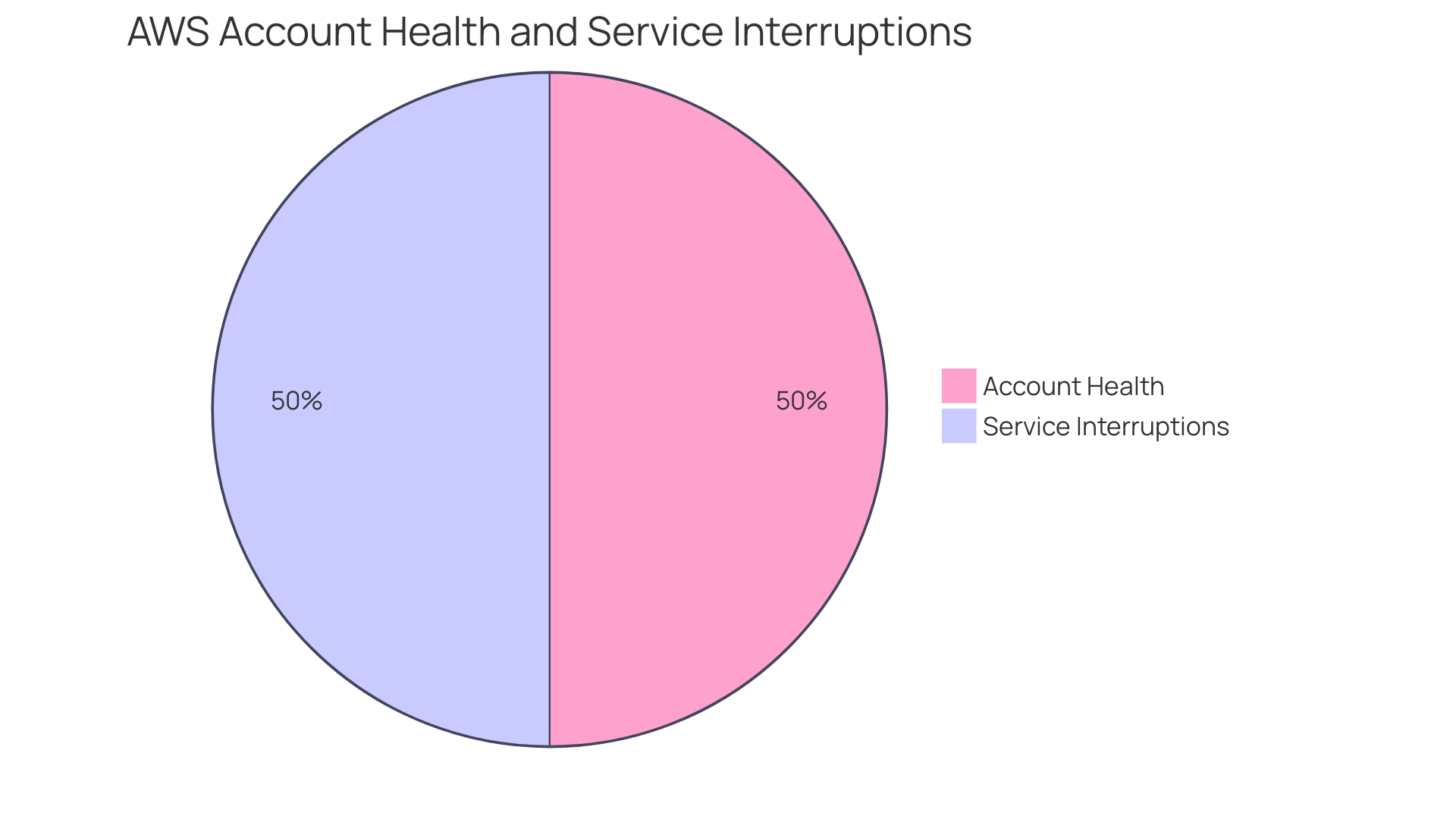
How AWS Works
Understanding AWS's pay-as-you-go model, which allows users to pay only for the services they consume, is fundamental to leveraging its full potential. This approach offers flexibility and scalability, catering to businesses of varying sizes and needs. AWS's extensive infrastructure spans multiple regions, each comprising several availability zones. These zones are designed as independent data centers to enhance redundancy and achieve high availability, ensuring business continuity.
AWS's comprehensive suite of services includes computing power, storage solutions, databases, analytics, machine learning, networking, and security, making it a robust platform for various technological requirements. By providing a wide array of services, AWS enables organizations like Dunelm Group, Vertex Pharmaceuticals, and the BMW Group to reflect growth in their structure and software architecture, whether it's through microservices for backend systems or solutions for frontend layers that drive significant revenue.
The platform's versatility is evident in use cases across different industries. For example, Vertex Pharmaceuticals leverages AWS's machine learning capabilities for drug discovery, analyzing vast datasets and microscope images to expedite therapeutic development. Similarly, the BMW Group relies on AWS for data-driven decision-making, utilizing data scientists and machine learning engineers to improve business processes and product development strategies.
AWS's cloud services have proven indispensable for companies like GoDaddy, which serves over 20 million customers globally, by providing valuable insights from data to fuel business decisions and customer satisfaction. The cloud platform's ability to host scalable and elastic workloads on cutting-edge hardware with a pay-as-you-go pricing model is crucial for businesses aiming for efficiency and growth.
Moreover, the platform's security culture is a cornerstone of its operations, as highlighted by AWS's emphasis on security as a business imperative, ensuring that customers' mission-critical applications and sensitive data are protected. As organizations navigate the complexities of scaling and hypergrowth, AWS offers a solution that balances affordability and flexibility, enabling businesses to scale at their own pace without overspending on underutilized resources.
Key Benefits of AWS Cloud Computing
Embracing Amazon Web Services (AWS) for cloud computing is an essential step for businesses looking to modernize and enhance their operations. AWS offers a scalable infrastructure that allows organizations to build robust systems, which is particularly beneficial for e-commerce entities aiming to revamp their business model. By leveraging AWS, businesses can avoid the time-consuming tasks of optimizing databases, fine-tuning multimedia content, and maintaining physical hardware and software. Instead, they gain the ability to create a powerful, scalable infrastructure with ease.
In today's digital age, where IT spending on cloud computing infrastructure surpasses a third of total IT expenditure, the trend toward cloud reliance is clear. AWS stands out as a leading platform enabling businesses of all sizes to rent online storage and computing power on-demand. This shift indicates a move away from traditional in-house IT to a more flexible and cost-effective model.
AWS's affordability and adaptability are key factors in its widespread adoption. The platform's pay-as-you-go service model provides businesses with the flexibility to scale their operations according to their growth and demand patterns. Small and medium-sized businesses, often at the forefront of innovation, find AWS's cloud services particularly advantageous. The integration of artificial intelligence (AI) and the promise of generative AI tools have generated significant interest among these businesses, driven by the potential for enhanced productivity, customer satisfaction, and continuous innovation.
Furthermore, AWS's extensive ecosystem fosters a culture of collaboration and knowledge sharing, offering enterprises access to an array of expertise, tools, and a global community of users. This ecosystem is instrumental in driving innovation, as evidenced by companies like GoDaddy, which harnesses AWS to optimize their batch processing jobs through a structured approach that improves efficiency.
Investments in AWS's infrastructure also reflect its significance in shaping the future digital economy. The platform's commitment to expanding its services, as seen in its planned £8 billion investment in the UK's digital and AI infrastructure, emphasizes AWS's role in supporting business transformations and the digital economy's growth at large.
In summary, AWS is not just a cloud service provider; it is a catalyst for business transformation, innovation, and success in the rapidly evolving corporate landscape. By offering a robust, scalable infrastructure and a collaborative environment, AWS empowers organizations to focus on growth while managing their data and processes securely and efficiently.
Scalability and Flexibility
Amazon Web Services (AWS) excels in providing dynamic scalability to businesses of all sizes. Whether you're a burgeoning startup or a multinational corporation, AWS equips you with the infrastructure needed to support expansion and spur innovation. By utilizing AWS, companies can seamlessly adjust their resources in response to varying workloads and web traffic, which is critical for maintaining efficiency and managing costs effectively.
Consider the case of Dunelm Group plc, the UK's premier homewares retailer, whose digital platform is a significant revenue driver, accounting for about 35% of their total sales. Such companies, with high online traffic and sales, must adopt scalable architectures, like microservices for backend systems, to sustain growth.
Similarly, GoDaddy, with a global customer base exceeding 20 million, has honed in on data-driven strategies to fine-tune their batch processing jobs. They have embraced a structured approach known as the seven layers of improvement opportunities, a testament to their commitment to efficiency.
Moreover, AWS's pay-as-you-go model allows businesses to rent state-of-the-art online storage and computing power, providing a scalable and cost-effective solution. This approach has positioned AWS as an indispensable platform, evidenced by the disruption caused during rare AWS outages.
The scalability of AWS is underscored by the fact that even small and medium-sized businesses are leveraging generative AI tools on AWS to enhance team productivity and customer satisfaction. With AWS, businesses gain the flexibility to scale their operations in a cost-effective manner, ensuring that each user experiences consistent performance, regardless of location or time.
Reliability and High Availability
Amazon Web Services (AWS) exemplifies a powerful cloud platform that delivers not just vast service coverage but also the essential reliability and availability businesses demand. AWS's global presence, distributed across 81 zones in over 240 countries, ensures that services can be fenced into specific geographical areas, allowing for seamless scalability. The architecture of AWS is akin to an animal kingdom, as explained in an illustrative quote, divided into regions and availability zones that offer unique characteristics and governance.
The resilience of AWS is highlighted by the design and management of Amazon Elastic Container Service (ECS), which acknowledges the inevitability of system failures. AWS's approach is to expect the unexpected, building systems that can withstand and quickly recover from disruptions. For instance, with a 99.99% availability rate, even a fleet of one million servers expects around one hundred to be experiencing issues at any given time. This level of transparency about the potential for background failure speaks volumes about AWS's commitment to reliability.
Success stories like that of Dunelm Group plc, which relies heavily on AWS for its digital platform, underscore the importance of a robust infrastructure. Dunelm's website, which accounts for a significant portion of its revenue, benefits from the ability to maintain operations during high traffic volumes and ensure that any customer can make a purchase at any time, a direct measure of availability.
Business continuity and disaster recovery are critical components of AWS's value proposition. The service's ability to continue operating in the face of disasters, like the flood incident GCP faced in Paris, is due to well-designed recovery processes and objectives. AWS's disaster recovery plan, backup strategy, and data replication enable businesses to rebound from outages quickly, which is essential for maintaining operational integrity.
In summary, the resilience and availability offered by AWS are critical for businesses looking to maintain continuous operations with minimal downtime. AWS provides the tools and infrastructure necessary to achieve high availability and recover swiftly from failures, ensuring that businesses can focus on differentiating their applications and services.
Cost-Effectiveness
Amazon Web Services (AWS) provides a compelling paradigm shift for organizations looking to minimize upfront capital expenditure on infrastructure. Instead of large initial investments in physical hardware, AWS's cloud computing services offer a pay-as-you-go pricing model. This ensures that businesses pay only for the computing resources they consume. AWS's cost optimization tools and services are designed to aid organizations in orchestrating their cloud spending effectively.
The Cost Optimization pillar of the AWS Well-Architected Framework exemplifies the structured approach to minimizing costs while maximizing return on investment throughout the lifecycle of a workload. By focusing on financial management, resource provisioning, data management, and cost monitoring, businesses can refine their cloud expenses.
It is also critical to align financial and technology teams within an organization. CFOs, financial planners, and technology leads must collaborate to understand cloud consumption models and link technology spending to business outcomes.
For instance, GoDaddy, with over 20 million customers, applies a data-driven methodology to optimize its batch processing jobs, which is part of their broader efficiency initiatives. This approach underscores the importance of structured financial management in cloud cost optimization.
Moreover, the AWS Pricing Calculator is an essential tool for pre-service selection estimates, guiding businesses to plan budgets and discover cost-saving opportunities, especially beneficial for those new to AWS.
This shift in resource management is underscored by the trend towards generative AI, which has been noted to bring savings and productivity gains for enterprises, as per recent news. Adopting a cloud strategy, therefore, is not just about technology adoption but also about embracing a culture of continuous improvement and efficiency.
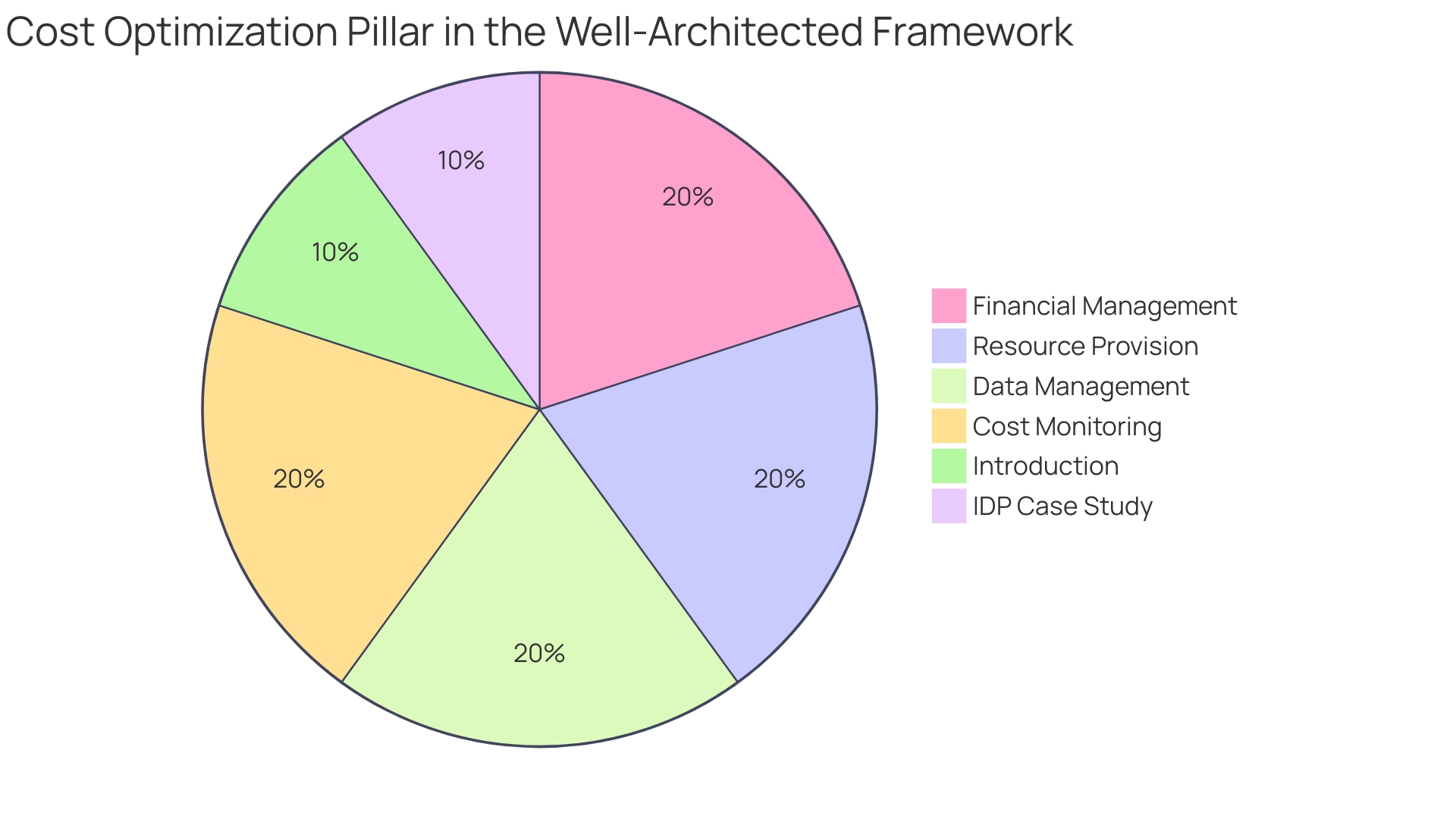
Security and Compliance
Amazon Web Services (AWS) is deeply committed to maintaining the security integrity of its cloud services, recognizing the critical importance of data protection for its customers. AWS has established comprehensive security protocols that incorporate advanced measures across multiple layers of defense to safeguard data and applications. One real-world example of AWS's vigilant security measures comes from Chime Financial, which relies on AWS's robust infrastructure to protect its members from unauthorized transactions. This commitment to security is evident in how AWS swiftly addressed a suspiciously created support case, indicative of a proactive approach to potential threats.
AWS's security framework is designed to meet the rigors of various industries, including healthcare, finance, and government, which often operate under stringent regulatory standards. For instance, AWS's capabilities align with GxP regulations, which are critical in the pharmaceutical and life sciences sectors. By undertaking joint audits and streamlining controls, AWS demonstrates its ability to meet and exceed the regulatory demands of these industries.
Moreover, AWS's adherence to international standards such as ISO 27001 showcases its dedication to implementing systematic information security risk management. This is particularly relevant for organizations within the European Union or those handling EU citizens' data, where compliance with data privacy regulations is non-negotiable.
The security measures implemented by AWS are not static; they evolve alongside emerging cybersecurity risks. AWS's Well-Architected Framework, particularly the Security Pillar, offers guidance for tackling common challenges in the field. This includes implementing robust access control, ensuring data protection, and managing keys and secrets effectively, further testament to AWS's commitment to fostering a secure cloud environment. With AWS, organizations have the tools and expertise necessary to navigate the complexities of cloud security and ensure their digital sovereignty, as echoed by government officials who have welcomed AWS's efforts to localize computing power and invest in digital infrastructure.
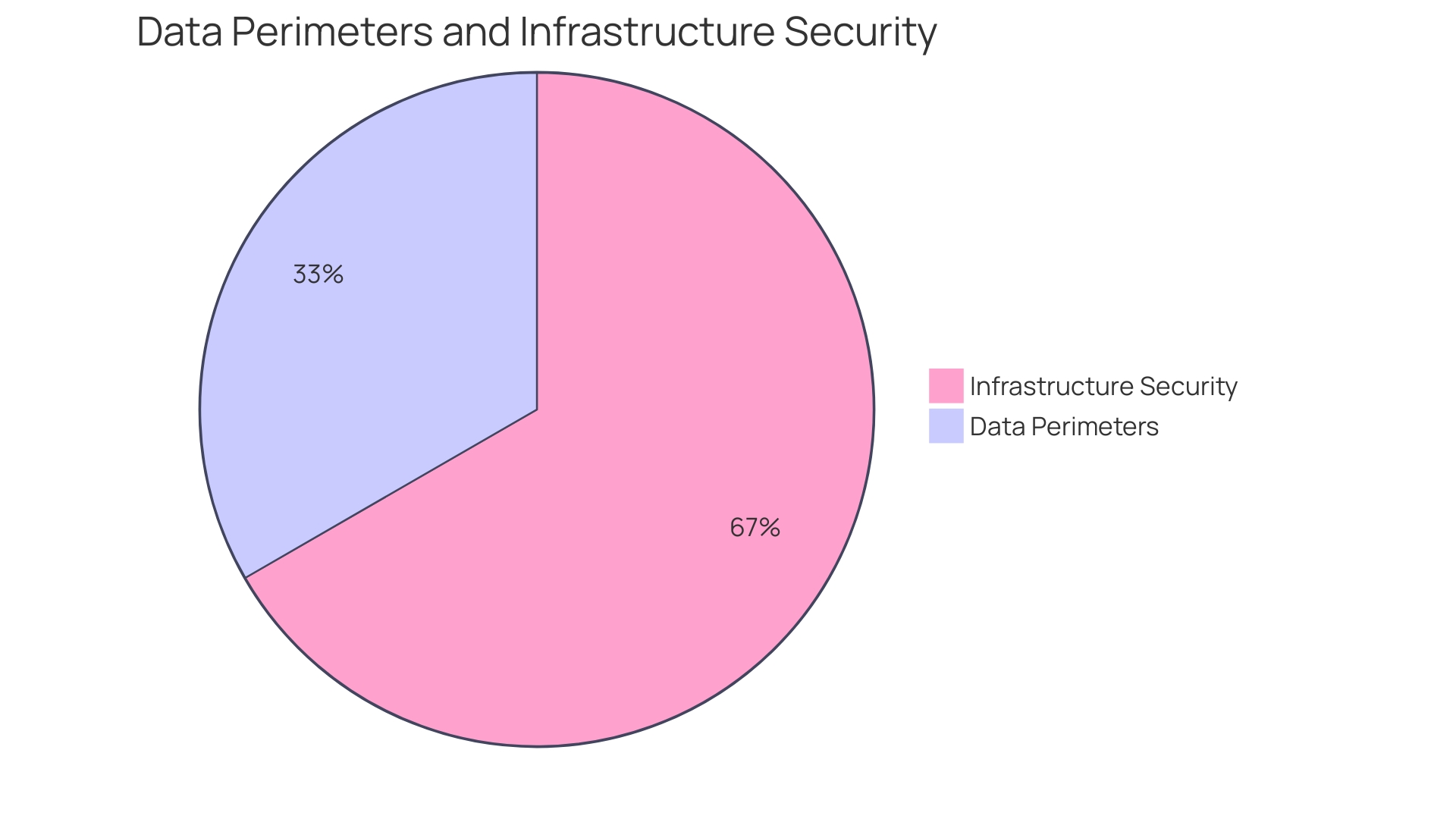
Core Services of Amazon Web Services
Amazon Web Services (AWS) is a powerhouse in the realm of cloud computing, delivering an extensive array of services that are integral to businesses of all sizes. Among its offerings, AWS provides scalable solutions for online storage and computing power, enabling companies to adjust resources according to their growth and demands. It's not just about storage and compute; AWS also offers advanced services like Amazon Q Business, a generative AI-powered assistant adept at answering questions, summarizing information, generating content, and completing tasks by tapping into an organization's data repositories and systems.
In particular, for those involved in customer support roles, such as engineers, project managers, and product managers, AWS's ability to integrate with platforms like ServiceNow is transformative. This integration facilitates the creation of AI-driven conversational applications that can access, retrieve, and provide well-constructed responses from knowledge articles, significantly enhancing customer support outcomes.
Moreover, AWS's commitment to security is evident through its unique culture and foundational design, ensuring that mission-critical applications and sensitive data are protected. This focus on security is a key factor in why AWS is trusted by startups, large enterprises, and government organizations globally. As AWS continues to evolve, it remains at the forefront of innovation, as evidenced by its development of new devices that incorporate generative AI and its plans for a sovereign European cloud, aligning with the digitization goals of various economies and offering more choices for organizations in managing digital sovereignty.
Compute Services
Amazon Web Services (AWS) continues to be a pivotal force in the cloud computing domain, providing a comprehensive suite of services tailored to meet the diverse demands of businesses and individuals alike. At the forefront of these services stands Amazon Elastic Compute Cloud (EC2), a robust platform designed to deliver scalable computing resources in the cloud, akin to the brain's role in processing tasks. EC2 offers the flexibility for businesses to rent virtual servers, or instances, and manage workloads with ease, facilitating rapid application deployment and resource scaling.
With EC2, companies like ICL, a global manufacturing and mining enterprise, have overcome substantial operational challenges. ICL's mining equipment, operating under extreme conditions, posed significant monitoring difficulties that previously mandated continuous manual oversight by on-site personnel. However, by leveraging EC2's scalable compute power, ICL successfully transitioned to more efficient remote monitoring systems that not only reduced costs but also scaled effectively with their business needs.
In addition, AWS has recently introduced EC2 Capacity Blocks, enhancing cost predictability and resource management for machine learning applications. This innovation grants customers the ability to reserve NVIDIA H100 Tensor Core GPU instances for a specified duration, much like booking a hotel room, complete with upfront cost transparency and the ability to adjust resources according to budgetary constraints and requirements. This feature is particularly beneficial for businesses engaging in AI-related tasks such as training machine learning models, providing them with a flexible and economical solution for accessing high-demand GPU resources.
Cloud computing's ascendancy, spearheaded by services like AWS EC2, underscores its critical role in modern business infrastructure. It has not only simplified data storage and server management but has also substantially reduced the capital costs associated with traditional IT infrastructure. The result is an era where businesses can innovate and grow at an unprecedented pace, harnessing the power of cloud computing to remain competitive and efficient in an ever-dynamic global market.
Storage Services
Amazon Web Services (AWS) encompasses a comprehensive suite of cloud services that cater to various business and individual needs, including robust storage solutions. Amazon Simple Storage Service (S3), known for its scalability and performance, is an object storage service offering unmatched data availability and security. It enables users to store and retrieve any amount of data from anywhere, serving as a backbone for companies like Chime Financial, which emphasizes the importance of security and reliability in financial technology services.
Amazon Elastic Block Store (EBS) delivers persistent block-level storage volumes for use with EC2 instances, allowing for the fine-tuning of storage performance and cost. Additionally, AWS addresses specific data retention needs with Amazon Glacier, an archival storage solution ideal for long-term data preservation at lower costs. For substantial data migration challenges, AWS Snowball provides a physical data transfer device to efficiently move terabytes or even petabytes of data into and out of AWS.
Organizations like Vertex Pharmaceuticals leverage AWS for data-intensive tasks such as drug discovery, where machine learning and high-volume data analysis are critical. AWS's scalable storage solutions are instrumental in processing and analyzing large datasets, enabling researchers to advance scientific discovery. With the continuous evolution of data storage requirements, AWS's suite of storage services offers flexible, secure, and cost-effective options to empower businesses to innovate and grow.
Database Services
Amazon Web Services (AWS) offers a comprehensive suite of database services to meet the multifaceted requirements of today's data-driven applications. With the burgeoning demand for efficient data management solutions, AWS has engineered specialized services that cater to various database architectures and operations. Amazon Relational Database Service (RDS) simplifies the setup, operation, and scaling of relational databases, providing support for familiar engines such as MySQL, PostgreSQL, Oracle, and SQL Server. RDS streamlines tasks like hardware provisioning, database setup, patching, and backups, offering a cost-efficient solution that frees developers to focus on their applications.
For those requiring a NoSQL approach, Amazon DynamoDB presents a high-performance, fully managed database service. It's designed to support massive scale, ensuring seamless performance even during spikes in traffic, as evidenced by its robust implementation in organizations such as Chime Financial. DynamoDB's capabilities are crucial for companies like Chime that monitor transaction patterns for fraud detection, demonstrating its reliability in mission-critical, security-sensitive environments.
When it comes to analytical processing at scale, Amazon Redshift serves as a fast, scalable data warehouse that makes it simple and cost-effective to analyze all your data across your data warehouse and data lake. Lex Machina turned to AWS to manage the complexities of their expansive Postgres database cluster, highlighting the need for a solution that could handle large volumes of data without the administrative burden typically associated with traditional database management.
Lastly, AWS provides Amazon Neptune, a fast, reliable, and fully managed graph database service, ideal for applications that require complex relationship data. The versatility of AWS's database offerings is further reinforced by their serverless options, which optimize performance and cost by automatically adapting to workload changes, as emphasized by Dr. Swami Sivasubramanian, vice president of Data and Artificial Intelligence at AWS. This serverless innovation is a testament to AWS's commitment to reducing the operational load on businesses and enabling them to scale effortlessly in line with their data strategy and use case demands.
Analytics and Machine Learning Services
Amazon Web Services (AWS) is at the forefront of providing powerful cloud computing solutions, particularly in the realms of data analytics and machine learning, which are pivotal for businesses in this data-driven age. AWS's Amazon Athena service empowers businesses to perform analysis on data housed in Amazon S3 by utilizing standard SQL queries, thereby facilitating swift and efficient data interrogation without the need for complex infrastructure management.
Complementing Athena, Amazon EMR stands as a robust managed big data framework that streamlines the processing of voluminous datasets. It leverages esteemed frameworks such as Apache Spark and Hadoop, accommodating a diverse array of big data use cases, which is illustrated by ICL's innovative application of AWS in monitoring their mining equipment under challenging conditions, as well as Chime Financial's commitment to security and member-first financial products. These real-world examples underscore the versatility and robustness of AWS services in tackling complex, industry-specific challenges.
Moreover, AWS's machine learning services, spearheaded by Amazon SageMaker, are designed to simplify the development and deployment of machine learning models. With SageMaker, organizations can innovate and integrate machine learning capabilities into their applications with increased agility and reduced complexity. The significance of machine learning in modern business is further highlighted by the impressive feats achieved by companies such as a neonatal neurotechnology firm in Ireland using AI to identify infants at risk, and a nonprofit leveraging ML to expedite the identification of digital evidence in abuse cases.
In the arena of machine learning, AWS's offerings cater to a spectrum of classification problems, from binary to multi-class, serving as a testament to their commitment to addressing diverse computational challenges. As we continue to witness the convergence of cloud computing with sustainable practices and interactive experiences, AWS is poised to remain an indispensable ally for organizations on their journey to harness the power of data and machine learning.
Networking and Content Delivery Services
Amazon Web Services (AWS) is a powerhouse in cloud computing, providing a suite of services to enhance network reliability and content delivery performance. The Amazon Virtual Private Cloud (VPC) is a cornerstone of AWS's networking services, offering users the ability to provision a logically isolated section of the AWS Cloud. Here, users can define their virtual networking environment, including selection of IP address ranges, creation of subnets, and configuration of route tables and network gateways. This customization enables businesses like Dunelm Group plc, a leading UK homewares retailer, to scale their digital platforms efficiently, reflecting their organizational growth through a robust and adaptable network infrastructure.
For instances where high-performance, dedicated network connections are paramount, AWS Direct Connect steps in. It bypasses the public internet by establishing a private link between the user's data center and AWS, ensuring consistent network performance. This service is crucial for companies like Chess.com, which hosts over ten million daily games and relies on a stable IT infrastructure to deliver a seamless experience to a global community of chess enthusiasts.
Content delivery is another domain where AWS excels. Amazon CloudFront, a content delivery network (CDN), is designed to deliver data, videos, applications, and APIs to customers globally with low latency and high transfer speeds. It's instrumental for e-commerce businesses requiring low-latency architectures for their customer portals, like the hypothetical business aiming to serve customers in Africa. By leveraging CloudFront, such a company can ensure fast retrieval of relational user information and product images, contributing to a fault-tolerant and highly available application.
William Collins, a principal cloud architect and an advocate for cloud adoption, emphasizes the broad range of services offered by AWS. The platform's continuous expansion includes over 200 fully featured services, ensuring that businesses can innovate and deploy their workloads effectively. AWS's commitment to networking excellence is evident in its services like the AWS Transit Gateway, which simplifies network management and connectivity across VPCs, AWS accounts, and on-premises networks, echoing Collins' experience with the transformative power of AWS in network planning.
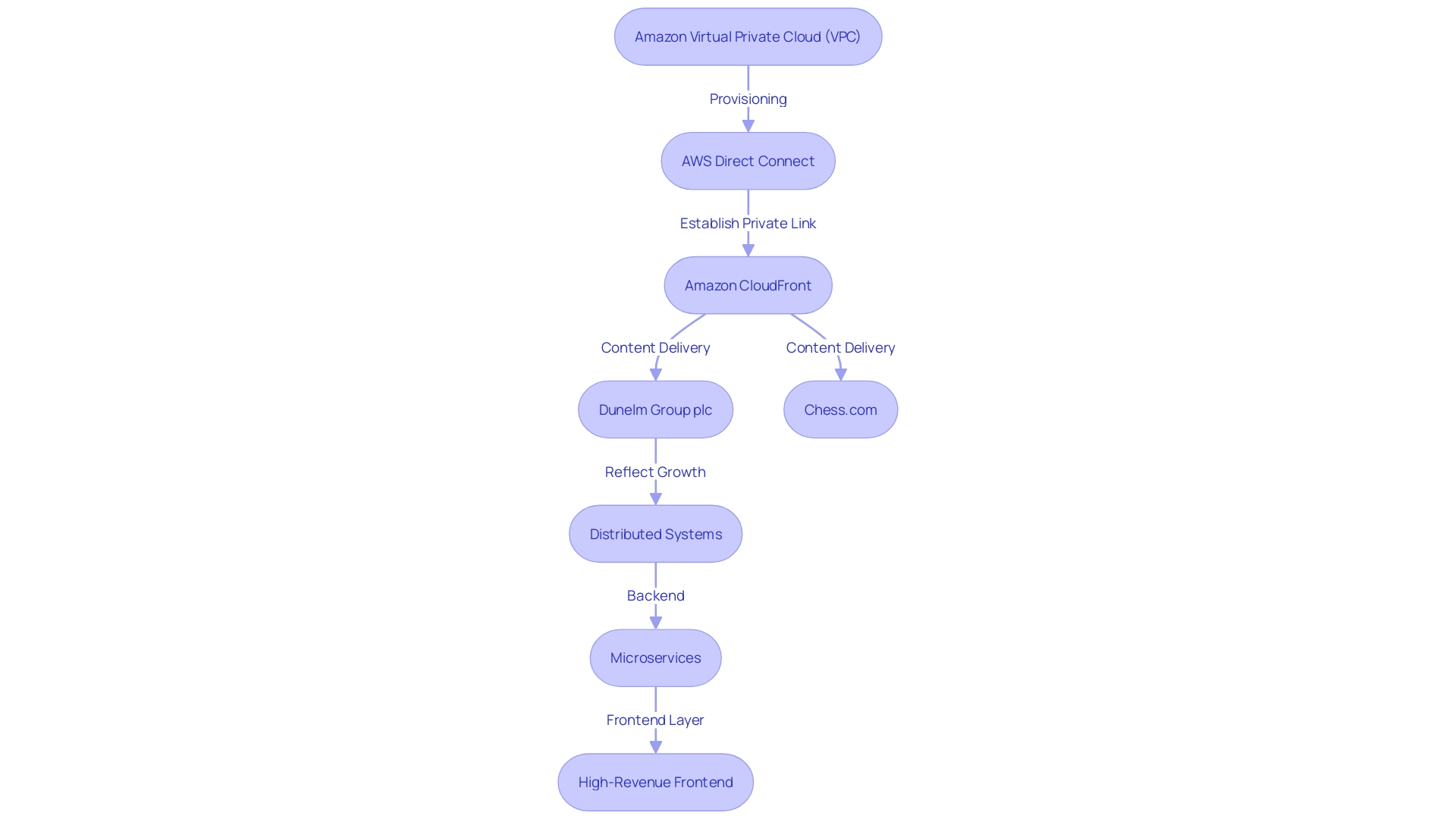
Security, Identity, and Compliance Services
Amazon Web Services (AWS) is not just a pioneer in cloud computing, commanding a significant 31% market share, but also a fortress of digital security. With robust services that cater to a wide range of security needs, AWS upholds the safety of cloud-based resources. AWS Identity and Access Management (IAM) is a cornerstone of this security architecture, providing meticulous control over user access and permissions. The significance of stringent access control was underscored in a case involving Chime Financial, where vigilant security measures were instrumental in protecting member accounts from unauthorized transactions.
To bolster security, AWS offers the Key Management Service (KMS), empowering users to manage encryption keys with confidence. Moreover, AWS takes a proactive stance against distributed denial-of-service (DDoS) attacks with AWS Shield, while AWS Web Application Firewall (WAF) serves as the first line of defense for web applications. For organizations that prioritize compliance, AWS Artifact delivers a repository of compliance documentation, streamlining the process of adhering to regulations. AWS's commitment to security is evident in its extensive investment across Europe, where it is not only generating high-quality jobs but also fortifying the digital landscape with its state-of-the-art infrastructure.
In light of the increasing complexity of data security challenges acknowledged by industry experts, AWS's security services are designed to address the differentiated nature of data, ensuring that sensitive information receives the heightened protection it deserves. AWS's comprehensive suite of services, ranging from IAM to WAF, forms an integrated defense system that aligns with the Security Pillar in the Well-Architected Framework, offering businesses a well-defined pathway to secure their cloud operations.

Real-World Applications of AWS
Amazon Web Services (AWS) has transformed industries by offering agility, flexibility, sustainability, and cost-effectiveness. In the manufacturing sector, AWS plays a critical role in standardizing operational technology systems, breaking down data silos, ensuring regulatory compliance, and enabling real-time decision-making. For instance, ICL, a global manufacturing and mining corporation, leverages AWS for monitoring industrial equipment under harsh conditions. Traditionally, manual monitoring was the norm due to difficulties in attaching sensors. Now, by adopting AWS solutions, ICL can achieve more scalable and cost-effective monitoring.
AWS's impact is also notable in the financial sector. Chime, a fintech company, utilizes AWS to enhance their banking services, making them helpful, easy, and free. Chime's Risk Analysis team uses AWS to monitor for fraudulent transactions, ensuring the protection of their members' accounts.
In the realm of drug discovery, Vertex Pharmaceuticals has co-authored a post highlighting the role of AWS in analyzing large datasets from experiments. AWS's machine learning capabilities allow researchers to efficiently analyze microscope images, which expedites the drug discovery process by identifying potential drug candidates.
AWS's commitment to innovation is further underscored by its investment plans. AWS announced a significant investment to bolster the UK's digital and AI infrastructure. This investment aligns with the UK's strategy to foster economic growth through digital transformation.
Moreover, AWS has become a cornerstone for small and medium-sized businesses (SMBs) seeking competitive advantages through AI and machine learning. Generative AI-powered tools, such as chatbots and coding companions, have become increasingly attractive to SMBs looking to enhance productivity and customer satisfaction.
AWS's influence extends to local economies as well. More than 60% of sales in Amazon's U.S. store come from independent sellers, predominantly SMBs. AWS provides the infrastructure for these businesses to scale and reach a wider customer base. Additionally, Amazon's job creation efforts, particularly in small towns, have been substantial. With each new fulfillment center, local economies gain an average of 3,000 jobs, demonstrating the positive ripple effect of AWS's presence.
In summary, AWS continues to drive innovation across various sectors, empowering businesses to optimize operations, protect customers, and foster economic growth.
E-commerce
E-commerce companies constantly seek robust infrastructure to support their rapidly evolving platforms, aiming to serve customers with efficiency and reliability. AWS offers a compelling solution, providing a flexible and scalable infrastructure that caters to the dynamic needs of online businesses. For instance, the UK's leading homewares retailer, Dunelm Group plc, experiences over 400 million sessions yearly on its website, which contributes to roughly 35% of its revenue. AWS's capacity to handle such high traffic and transactions is a testament to its scalability and reliability.
Building a robust infrastructure means integrating the right technology with reliable servers, advanced firewalls, and strong encryption measures. For e-commerce businesses looking to modernize and scale, AWS facilitates these upgrades without the need for extensive database optimization or hardware updates traditionally required. Through AWS's serverless architecture, core functions like order processing and inventory management become more efficient, forming the backbone of an e-commerce platform. This approach is exemplified by GoDaddy's initiative to optimize batch processing jobs, underlining AWS's role in driving operational efficiency and customer satisfaction.
Moreover, considering the challenges faced by a hypothetical e-commerce business designing a portal for African customers, AWS's capabilities to provide low-latency experiences, secure and fast access to relational user data, and fault-tolerant systems are crucial. The ability to ensure security for data at rest and in transit, along with comprehensive monitoring and logging, positions AWS as a viable option for companies, even those with budget constraints. As the e-commerce landscape continues to grow, AWS remains a key player in supporting businesses to thrive in the digital economy.
Media and Entertainment
Amazon Web Services (AWS) is at the forefront of providing robust infrastructure and services tailored for the media and entertainment sector. AWS's cloud computing solutions empower streaming platforms, content delivery networks, and video processing services, facilitating the seamless delivery of content to audiences worldwide. For instance, Amazon Music leverages AWS's powerful AI capabilities to optimize search functions, ensuring users can quickly and accurately find the music they love, even during peak traffic times. This level of responsiveness and personalization is critical to the platform's success, as it caters to millions of active users seeking a rich and diverse audio experience.
Similarly, Chess.com, a leader in online chess with over 150 million users, depends on AWS's flexible infrastructure to scale operations and connect players internationally. The platform's growth and ability to serve a global community are underpinned by AWS's secure data storage and transfer capabilities, particularly through services like Amazon Simple Storage Service (S3). S3's scalability is essential for handling the vast amounts of video and audio data that modern streaming services and gaming platforms like Chess.com generate. By centralizing their video accessibility needs, organizations can ensure an inclusive and compliant viewing experience, supported by AWS's cloud solutions.
As the media and entertainment industry evolves, the search for sustainable business models becomes imperative. Industry leaders agree that the traditional cable model is declining, making way for cloud-based solutions that offer scalability and cost-effectiveness. AWS's cloud infrastructure is instrumental in this shift, enabling real-time broadcasting, game streaming with low latency, and a host of other digital experiences. These technological advancements are reflected in the broader trends observed by Canalys and CloudFlare, which highlight the growing importance of internet connectivity and the continuous increase in global internet traffic, underscoring the significance of AWS in supporting the media and entertainment industry's future.

Healthcare
Amazon Web Services (AWS) provides a robust platform for healthcare organizations to securely manage sensitive patient data while adhering to regulatory standards. With AWS's expansive suite of analytics and machine learning capabilities, healthcare providers can extract actionable insights from voluminous data sets to tailor patient care and enhance health outcomes.
For instance, Vertex Pharmaceuticals utilized AWS's machine learning services to revolutionize drug discovery—a process traditionally hampered by the labor-intensive analysis of experimental data, such as microscopic images of drug interactions with biological material. By implementing image segmentation techniques, researchers can now train machine learning models to efficiently analyze and measure pertinent areas within images, streamlining data analysis and accelerating the drug development timeline.
Additionally, AWS's cloud technology has been pivotal in bridging the health equity gap. Organizations have leveraged AWS to devise innovative methods for delivering critical healthcare to underrepresented populations across 28 countries, according to Danielle Morris, global health equity lead at AWS. This initiative underscores the importance of cloud technology in enhancing access to high-quality healthcare services and fostering resilient communities equipped to address social determinants of health.
In the realm of artificial intelligence, healthcare organizations anticipate a 44 percent surge in labor productivity following the full integration of AI, with 61 percent of healthcare employers expecting significant improvements in workflow and clinical outcomes. Ai's potential extends to fraud detection, quality assurance, and medical imaging review—areas where healthcare employees foresee enhanced communication and documentation efficacy.
Furthermore, the integration of legacy data with modern datasets presents a substantial challenge. Federation learning addresses this by streamlining the consolidation of diverse data sources, thereby aiding healthcare leaders in making more informed decisions. AWS's comprehensive solution architecture, which includes data extraction and storage, offers a glimpse into the intricate components and services that constitute an effective cloud-based healthcare data management system, as detailed in AWS Professional Services' exploration of large language models and their applications.
Through AWS, healthcare institutions are not only ensuring compliance and security but are also harnessing the power of cloud computing and AI to propel the industry towards a future where personalized medicine and improved patient care are the norm.
Financial Services
Amazon Web Services (AWS) provides a robust, scalable platform that empowers the financial services industry to innovate and thrive in a complex and rapidly evolving market. Financial institutions, from established banks to dynamic FinTech startups, harness AWS to develop resilient applications, streamline transaction processing, and adhere to stringent industry regulations. By embracing the cloud, organizations like Chime Financial have transformed basic banking services into helpful, accessible, and cost-effective solutions that prioritize the customer. Chime's collaboration with national banks has sparked a surge in innovation and competition, offering better financial products to those underserved by traditional banking systems.
In addition to fostering financial inclusion, AWS's infrastructure plays a critical role in fraud detection and risk analysis, enabling real-time monitoring and protection against unauthorized transactions. Companies like Chess.com have leveraged AWS to scale their digital platforms, connecting millions of users worldwide through the timeless game of chess.
Scott Mullins, General Manager of Financial Services at AWS, emphasizes the importance of harnessing generative AI to achieve rapid intelligence acquisition. This requires well-organized data, a key factor in leveraging AI and machine learning to process and extract information from diverse documents, as outlined by industry practices for Intelligent Document Processing (IDP). The shift from manual to automated document workflows is imperative for businesses to accelerate decision-making and enhance efficiency, productivity, and innovation in their operations.

Advantages of Using Amazon Web Services
Amazon Web Services (AWS) provides an indispensable toolkit for businesses to thrive in the digital age. By offering a suite of cloud computing services and APIs, it caters to a wide range of organizational needs, from startups to government agencies. AWS's platform is renowned for its flexibility, enabling businesses to tailor their cloud infrastructure to their specific requirements, ensuring that their technological growth aligns seamlessly with their business objectives.
For instance, Dunelm Group plc, a leader in the UK homewares market, leverages its digital platform to generate a significant portion of its revenue. As the company grows, it recognizes the need to evolve its software architecture to maintain its market position. AWS enables such transitions, facilitating a shift to distributed systems and robust microservices that support the front-end, which is critical for high-revenue generation.
Similarly, Chime Financial, a FinTech company committed to offering member-first financial products, relies on AWS for its risk analysis and fraud prevention mechanisms. AWS's robust infrastructure allows Chime to monitor transaction patterns and secure accounts against unauthorized activities, underlying the platform's capacity to support sensitive and critical financial operations.
The importance of a scalable and robust infrastructure cannot be overstated for businesses looking to modernize, especially in e-commerce. AWS empowers businesses to construct a powerful infrastructure with the right technology, servers, firewalls, and encryption tools. Serverless architecture, a key feature of AWS, streamlines core functions such as order processing and inventory management, forming the backbone of any e-commerce platform.
AWS's commitment is further exemplified by its plan to invest billions in digital and AI infrastructure, signaling confidence in the UK's digital economy and its strategic partnerships with businesses. This investment promises to bolster the capabilities of AWS, providing even greater resources and support to its customers.
Adopting AWS translates into tangible benefits, including maximized cost efficiency by reducing capital expenses on hardware and software. The cloud platform's prowess is evident from the healthcare industry to SMBs, where it facilitates innovation and competitive differentiation. As the future of cloud computing unfolds, AWS is positioned at the forefront, offering businesses the opportunity to revolutionize how they operate and compete in the global market.
Global Infrastructure
Amazon Web Services (AWS) has meticulously constructed a vast network of cloud regions, consisting of numerous data centers, to support the diverse and complex needs of businesses worldwide. This strategic placement of infrastructure ensures that applications are deployed in proximity to end-users, thereby reducing latency and enhancing performance. For instance, BMW Group, a global leader in premium automobiles and motorcycles, relies on data-driven decision-making to set trends in production technology and sustainability. Utilizing AWS's extensive infrastructure, BMW is able to harness machine learning (ML) engineers and data scientists to build and deploy models that refine business processes and support strategic decisions.
Furthermore, Vertex Pharmaceuticals leverages AWS's robust infrastructure for the critical task of drug discovery. They apply machine learning techniques to analyze vast datasets, such as microscope images, to expedite the identification of therapeutic compounds. The global reach and computational power of AWS enable Vertex to conduct image segmentation at scale, an essential step in modern drug development.
In addition to these corporate giants, Dunelm Group plc, the UK's premier homewares retailer, uses AWS to manage the digital experience of over 400 million yearly website sessions, which contribute significantly to their revenue. AWS's cloud regions offer the scalability and distributed architectural support that is crucial for businesses like Dunelm as they evolve and grow.
The collective experience of these companies underscores the value proposition of AWS: to provide modern, highly scalable, and elastic workloads with the latest hardware technology on a pay-as-you-go basis. Whether it's GoDaddy optimizing batch processing jobs for over 20 million customers or global enterprises like BMW Group and Vertex Pharmaceuticals conducting sophisticated data analysis, AWS's infrastructure plays a pivotal role in empowering organizations to focus on innovation and business objectives without the burdens of scale and maintenance.

Innovation and Time-to-Market
Amazon Web Services (AWS) stands at the forefront of cloud computing, providing a robust portfolio of services that foster innovation and expedite the journey from idea to market-ready product. By harnessing the prowess of AWS, enterprises have the capacity to iterate, develop, and deploy applications with unparalleled speed within a comprehensive ecosystem.
A testament to the power of AWS's innovation-centric approach is Amazon's own journey, where groundbreaking advancements such as custom chip technology and the revolutionary 'Just Walk Out' retail concept were conceived. These innovations stem from a deep-rooted culture of customer-centric experimentation, as encapsulated by Amazon's 'Working Backwards' process—a method that begins with the customer's needs as the nucleus of problem-solving initiatives.
Real-world applications of AWS's capabilities are illustrated by the collaboration between AWS and ICL, a global manufacturing and mining corporation. ICL faced significant challenges in monitoring industrial machinery under extreme conditions, which traditionally required intensive manual oversight. AWS provided a transformative solution, enabling more scalable and cost-effective remote monitoring capabilities.
The AWS platform is continuously evolving, with AWS re: Invent showcasing the latest breakthroughs. For instance, the event highlighted how AWS's partnership with sports franchises is creating immersive experiences, such as simulating Formula One races and measuring the physics of a soccer kick in real-time. Moreover, AWS's impact extends beyond entertainment, playing a pivotal role in societal advancements. Organizations leverage AWS's artificial intelligence (AI) and machine learning (ML) services to address critical issues, from environmental monitoring to safeguarding children against abuse online, demonstrating the platform's versatile and far-reaching benefits.
In addition to fostering innovation, AWS also streamlines business processes. Companies like Samsung have reaped the benefits of AWS Fargate by reducing the need for dedicated administrators for web services, thereby cutting operational costs and enhancing development efficiency. This shift has allowed teams to focus on more complex tasks such as logging and monitoring, which bolsters service reliability, security, and performance.
AWS's comprehensive suite of products, exemplified by its Free Tier offerings, stands as a testament to the democratization of technology for new customers, enabling them to explore and adopt cloud services without initial cost barriers. This accessibility is crucial for maintaining a delicate balance in supply chains, avoiding both undersupply and oversupply, which AWS addresses through advanced forecasting methods and strategic planning tools.
The ongoing innovation and application of AWS in various sectors underscore its role as a catalyst for transformation, equipping businesses with the tools to navigate and thrive in the ever-evolving digital landscape.
Cost Savings
Amazon Web Services (AWS) has transformed the economic landscape for businesses by introducing a scalable pay-as-you-go model for its cloud computing services. This innovative approach to IT spending allows organizations to precisely align their expenses with usage, avoiding the substantial upfront costs typically associated with on-premise infrastructure investments. By leveraging the flexibility of AWS's pricing structure, companies like GoDaddy have successfully optimized their batch processing jobs, embracing a data-driven methodology that significantly enhances efficiency and customer satisfaction. GoDaddy, with its expansive customer base, has adopted a seven-layered strategy for continuous improvement, a testament to the effectiveness of AWS's cost management capabilities. This model not only enables better financial control but also ensures that businesses can rapidly adapt to changing demands without the burden of over-provisioning or underutilizing resources. Furthermore, AWS's commitment to cost optimization is evidenced through the Well-Architected Framework, which guides organizations in creating and operating cost-aware workloads to achieve desired outcomes while maximizing return on investment. Such strategic financial and technological collaborations underscore the critical role AWS plays in empowering businesses to manage their IT budgets more effectively, ultimately leading to a more agile and competitive stance in the market.
Reliability and Scalability
Amazon Web Services (AWS) stands as a paragon of cloud computing, famed for its robust infrastructure that provides businesses with the resilience and scalability they require to maintain high availability. With AWS, companies are equipped to manage any level of workload and navigate traffic surges without breaking stride. This durability is paramount for businesses where continuous operation is non-negotiable and downtime equates to direct financial loss.
AWS's architecture is designed with a realistic perspective on system failures, embracing the inevitability of such events over an application's lifespan. Within AWS's expansive server fleet, even a staggering 99.99% availability rate means that at any given moment, a handful of servers may falter—yet the overall system's integrity remains uncompromised due to its resilient design.
Organizations like Chime Financial have leveraged AWS to safeguard their operations and ensure customer transactions remain secure and uninterrupted. Similarly, Charter Global utilizes AWS's capabilities to augment their IT solutions, driving digital transformation and operational efficiency for their clients.
The widespread adoption of AWS by businesses large and small is a testament to its global reach, spanning over 240 countries and 81 availability zones. This geographic dispersion not only enhances fault tolerance but also allows businesses to localize their services for better performance and compliance with data residency regulations. The pay-as-you-go service model, devoid of long-term contracts, empowers businesses to scale their operations with agility, aligning closely with their growth trajectories and avoiding the pitfalls of overprovisioning.
By offering the latest in computing power and storage solutions, AWS continues to be the cloud provider of choice for entities that prioritize efficient scaling, financial prudence, and a steadfast commitment to customer satisfaction, as evidenced by the experiences of companies like GoDaddy, which have harnessed AWS to optimize their data processing and enhance overall business efficiency.
Disadvantages and Challenges of Using AWS
While AWS is known for its scalability and flexibility, enabling businesses to rent online storage and computing power as needed, it's important to recognize the challenges that come with cloud adoption. AWS's popularity means that outages can have significant impacts, as seen in various high-profile disruptions to daily life. For instance, Dunelm Group plc's reliance on their digital platform for a substantial percentage of their revenue underlines the need for a robust, scalable solution that AWS aims to provide.
The shift to AWS or any cloud provider requires a strategic approach. For businesses with mature development teams, the decision to build solutions in-house versus buying them is pivotal. While AWS offers the convenience of managed services, organizations must weigh the investment of time and resources against their business objectives. Moreover, the adoption of cloud services necessitates a learning curve, with considerations for legacy systems, dedicated hardware, and regulatory requirements potentially making on-premise solutions more suitable in certain scenarios.
Transformation involves not only technology but also a mindset shift, as demonstrated by the UK government's Exemplar program, which achieved significant service improvements swiftly. Similarly, AWS's pay-as-you-go pricing model allows for the creation of modern, elastic workloads on cutting-edge hardware, appealing to businesses that seek to scale efficiently.
However, as we move towards modernization, AWS's IPv6 support and the strategic use of IPv4 addresses come into play. Organizations need to consider their approach to IPv6 adoption, as AWS's own support has notable gaps. This reflects a broader discussion on privacy and the management of user data, with AWS providing a platform that must align with the privacy preferences and regulatory compliance of its users.
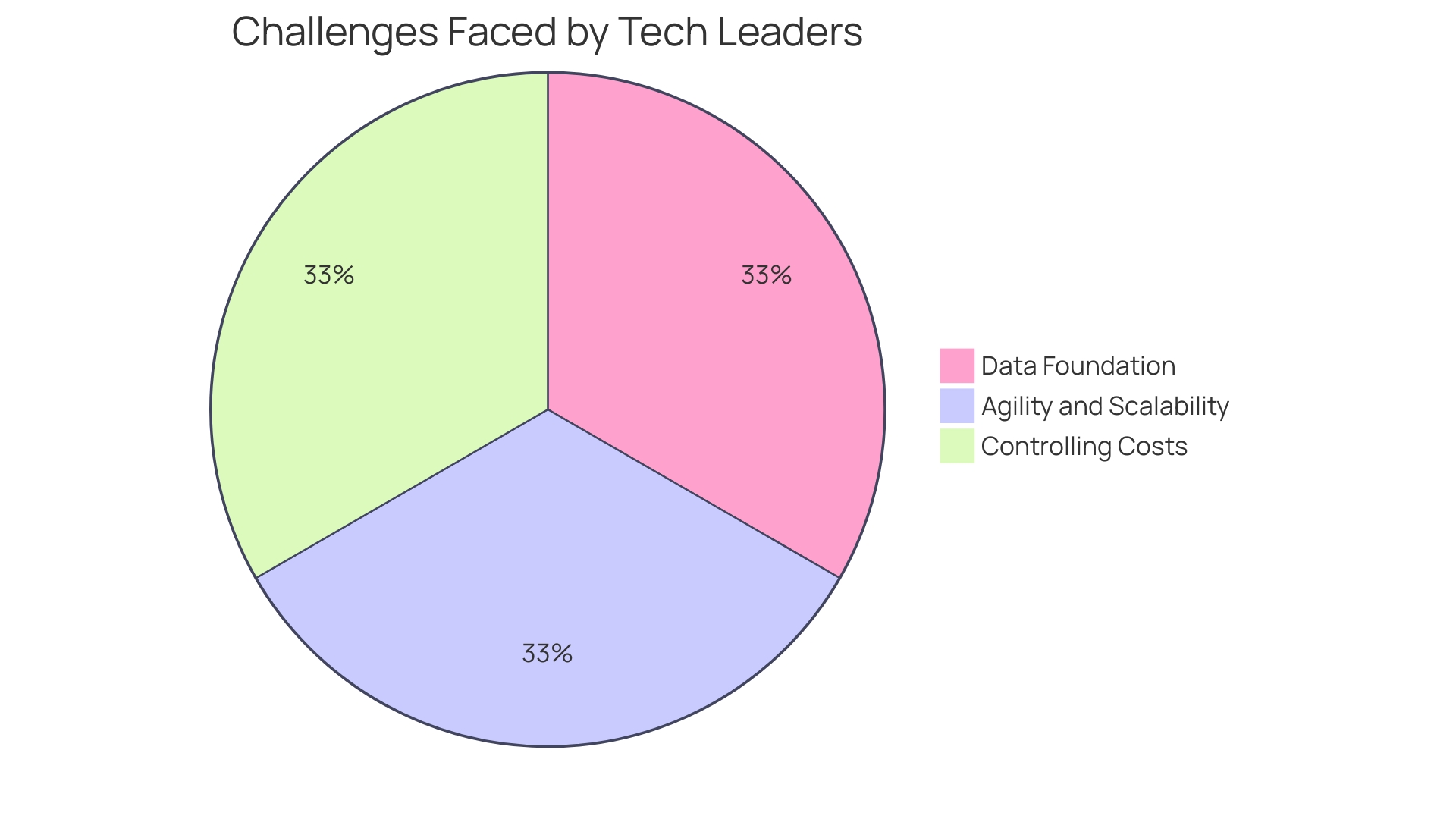
Complexity
Navigating the extensive portfolio of Amazon Web Services (AWS) can initially seem daunting. Yet, with a strategic approach and a focus on hands-on application, one can harness the full potential of the platform. Consider, for instance, the creation of a translation application utilizing AWS's suite of artificial intelligence services. This project, achievable in under 30 minutes, provides a tangible learning experience through the integration of Amazon Translate, Amazon Comprehend, Amazon Lambda, Amazon Polly, and Amazon Lex.
This practical exercise underscores the value of AWS as a market leader with a comprehensive service offering that fosters innovation, as evident with over 7,000 languages spoken globally and the necessity for applications that enable communication across cultures. AWS's robust documentation supports this educational journey, making it accessible to both novices and veterans alike.
Moreover, AWS's capabilities extend beyond individual projects. The platform's scalability and cost-efficiency enable organizations to build modern, highly scalable, and elastic workloads on cutting-edge hardware with a pay-as-you-go pricing model. This flexibility allows for the efficient running of applications and the transition from managing servers to consuming services. However, the shift to cloud computing does entail a learning curve, especially when considering the balance between building in-house solutions versus purchasing services for immediate consumption.
Real-world applications of AWS's power are evident across various sectors. For example, an Ireland-based neonatal neurotechnology company employs AWS's AI to rapidly identify newborns at risk of brain injury due to birth complications. Similarly, organizations utilize AWS to analyze satellite imagery for monitoring environmental issues like deforestation. In the realm of social good, machine learning capabilities provided by AWS have significantly expedited the analysis of millions of digital files to detect instances of sexual abuse against children.
In summary, the decision to build or buy hinges on numerous factors, including time, effort, and organizational goals. AWS provides an environment where both options are viable, supported by a plethora of services that cater to diverse needs and objectives, from constructing a vote-collecting system using Amazon Simple Queue Service (SQS) to developing cost-aware and sustainable architectures. As cloud computing continues to offer flexible resources, accelerated innovation, and economies of scale, mastering AWS remains a path to technological leadership.
Cost Management
Navigating the complexities of cloud cost management is a critical challenge that organizations face when utilizing Amazon Web Services (AWS). It's not just about leveraging AWS's cost optimization tools; it involves a comprehensive approach that spans the entire life cycle of a workload. To harness the full potential of AWS while maintaining a cost-effective strategy, firms must adopt the Cost Optimization pillar of the Well-Architected Framework, which underscores the significance of integrating financial management, resource optimization, data management, and meticulous cost monitoring.
The process requires a concerted effort from both technology and financial leaders within the organization. CFOs, financial controllers, and business analysts must have a profound understanding of the cloud consumption model, purchasing options, and billing processes. Concurrently, technology leads, including product and application owners, should be attuned to both financial constraints and the business requirements, such as service level agreements.
By establishing a cross-disciplinary collaboration, organizations can create an IT narrative that connects technology expenditures to tangible business outcomes. Such integrative efforts are exemplified in the successful implementation of cost-aware workloads, as evidenced in the IDP case study. The IDP's approach demonstrates that through a continuous cycle of refinement, it is possible to achieve business objectives while minimizing costs and maximizing return on investment.
Moreover, recent insights shared by AWS CEO Andy Jassy highlight the effectiveness of cost optimization strategies. By reengineering its network to bring products closer to customers, AWS has significantly reduced its cost-to-serve on a per-unit basis, a move that has improved profit margins and allowed for reinvestment in service enhancements and expansions.
In conclusion, effective cost management in AWS is not a one-time setup but an ongoing endeavor that requires clear goals, precise metrics, and the synergy of financial acumen and technological expertise. This holistic view ensures that organizations can steer their cloud investments towards sustained growth and profitability.

Vendor Lock-In
The rapid expansion of the cloud computing sector has reshaped how businesses operate, with many organizations, from startups to global enterprises, leveraging cloud services for a multitude of applications. Amazon Web Services (AWS), the cloud computing arm of Amazon.com, is a significant force in this arena, offering a suite of services that encompasses computing power, storage options, and networking capabilities.
With the broad adoption of AWS, businesses enjoy the benefits of scalability and reliability, powered by a global network of data centers aptly named Availability Zones. AWS’s extensive infrastructure and continuous growth have cemented its position as a dominant player in the cloud market, commanding a substantial share of the global cloud infrastructure industry.
However, this dominance comes with considerations for organizations regarding vendor lock-in. The concerns around becoming too reliant on a single provider's ecosystem are not unfounded, as transitioning to another provider can be fraught with complexity and expenses. Notably, industry thought leader David S. Linthicum, author of 'An Insider’s Guide to Cloud Computing,' echoes the sentiment that dependence on a solitary cloud provider can lead to challenges, both operational and financial.
Counterbalancing this concern, interoperable solutions such as the central alert management and automation hub, Keep, demonstrate the possibility of circumventing vendor lock-in. Keep enables data to be exported and integrated with other platforms with ease, ensuring that organizations maintain their flexibility and are not solely dependent on a single vendor’s pricing and service structure.
The discourse around vendor lock-in has also reached policy advocacy, with Amazon actively influencing discussions to promote cloud neutrality. Reports have indicated that Amazon has been a significant backer of advocacy groups aiming to prevent rivals, particularly Microsoft Azure, from creating restrictive ecosystems that could limit technological advancement and customer choice.
In the context of AWS, the necessity for agility and the need to avoid vendor lock-in is clear. As organizations navigate the evolving landscape of cloud computing, they must weigh the advantages of AWS's robust services against the potential constraints of becoming too intertwined with a single cloud service provider.
Future of AWS and Cloud Computing
Amazon Web Services (AWS) is reshaping the cloud computing domain with continuous innovation, particularly in the realms of artificial intelligence (AI), the Internet of Things (IoT), and serverless computing. These advancements stand to revolutionize the technological landscape, empowering businesses to unlock new capabilities and efficiencies.
In the field of AI, AWS has enabled organizations like TR Labs to seamlessly integrate AI and machine learning (ML) models into their products and editorial systems, enhancing productivity. The team at TR Labs, which has grown to over a hundred members, has tackled the complexities of developing and training ML models, showcasing the scalability of AWS solutions in the face of increasing complexity.
The power of AWS is also evident in the drug discovery sector. Vertex Pharmaceuticals utilized AWS's cloud architecture to streamline the analysis of experimental data, including microscope images. By employing ML for image segmentation, researchers can now analyze images more efficiently, thereby accelerating the drug discovery process.
Another testament to AWS's impact is Chess.com, a platform that hosts millions of chess games daily. AWS has provided the infrastructure to support the platform's rapid growth and its 150-plus million users, highlighting the scalability and stability of AWS services.
Statistics further underscore the transformative influence of AWS. With the increasing adoption of IoT, 5G, ML, and real-time analytics powered by AI, cloud technology becomes even more essential. AWS's cloud computing architecture facilitates businesses in operating more efficiently and adapting swiftly to market changes, driving market growth.
Moreover, the World Economic Forum has acknowledged that the fourth industrial revolution is fostering the adoption of advanced technologies such as IoT, AI, and cloud computing. In this context, companies across various industries are turning to cloud services like AWS to power these advanced technologies and stay competitive in a rapidly evolving digital landscape.
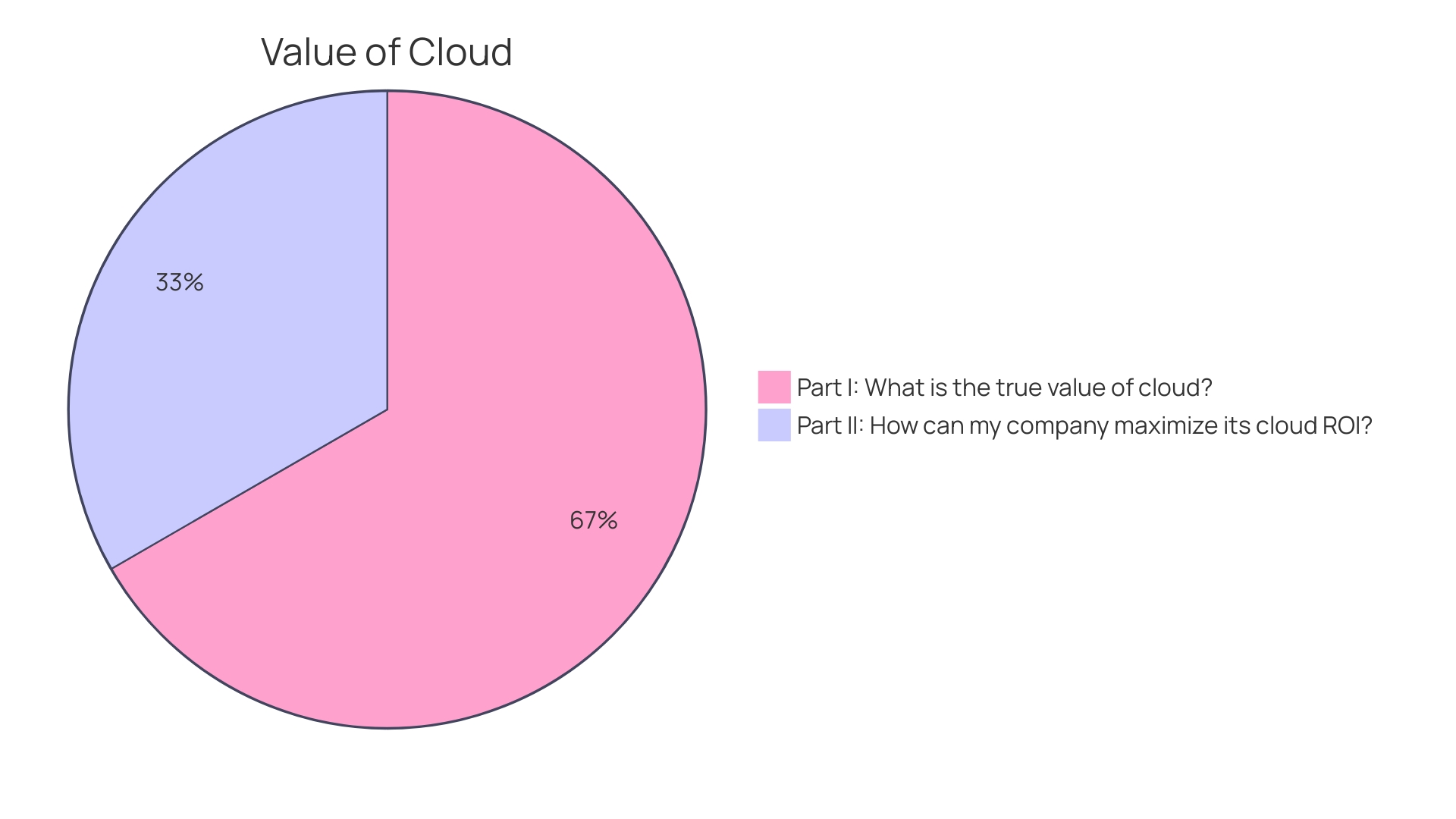
Conclusion
In conclusion, Amazon Web Services (AWS) has revolutionized cloud computing, offering a comprehensive suite of services that empower businesses to innovate, enhance operations, and drive growth. With its scalable infrastructure and pay-as-you-go pricing model, AWS caters to the diverse needs of organizations worldwide.
AWS's global infrastructure, consisting of numerous data centers known as Availability Zones, ensures reliable and scalable services for its vast customer base. The platform's dominance in the cloud infrastructure industry further highlights its significance and reliability. AWS's commitment to security and compliance, demonstrated through comprehensive protocols and adherence to international standards, ensures the protection of customer data and applications.
Scalability and flexibility are key advantages of AWS. Its pay-as-you-go model allows organizations to scale operations according to growth and demand patterns, optimizing costs and avoiding overspending on underutilized resources. The extensive suite of services, including computing power, storage solutions, databases, analytics, machine learning, networking, and security, provides businesses with a robust platform to meet their technological requirements.
AWS's commitment to innovation and continuous expansion ensures that businesses can stay at the forefront of technology. Its machine learning and AI capabilities enable organizations to unlock new possibilities and drive advancements in various industries. Additionally, AWS's partnership with sports franchises and investment in digital and AI infrastructure demonstrate its dedication to driving innovation and supporting economic growth.
While AWS offers numerous benefits, organizations should be aware of challenges such as vendor lock-in and the complexity of cloud adoption. However, AWS's interoperable solutions and advocacy for cloud neutrality mitigate these concerns, emphasizing the importance of maintaining flexibility and choice.
In summary, AWS is a trusted authority in cloud computing, providing a robust, scalable, and cost-effective platform for businesses to thrive in the digital economy. Its comprehensive suite of services, commitment to security, and dedication to innovation position AWS as a catalyst for business transformation, innovation, and success. By leveraging AWS, organizations can focus on growth, securely manage data and processes, and stay competitive in the rapidly evolving corporate landscape.
Experience the power of AWS and revolutionize your business today!




